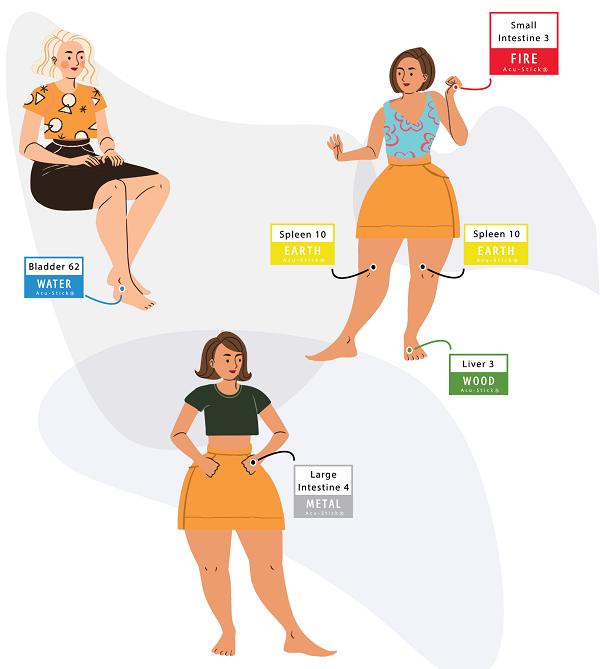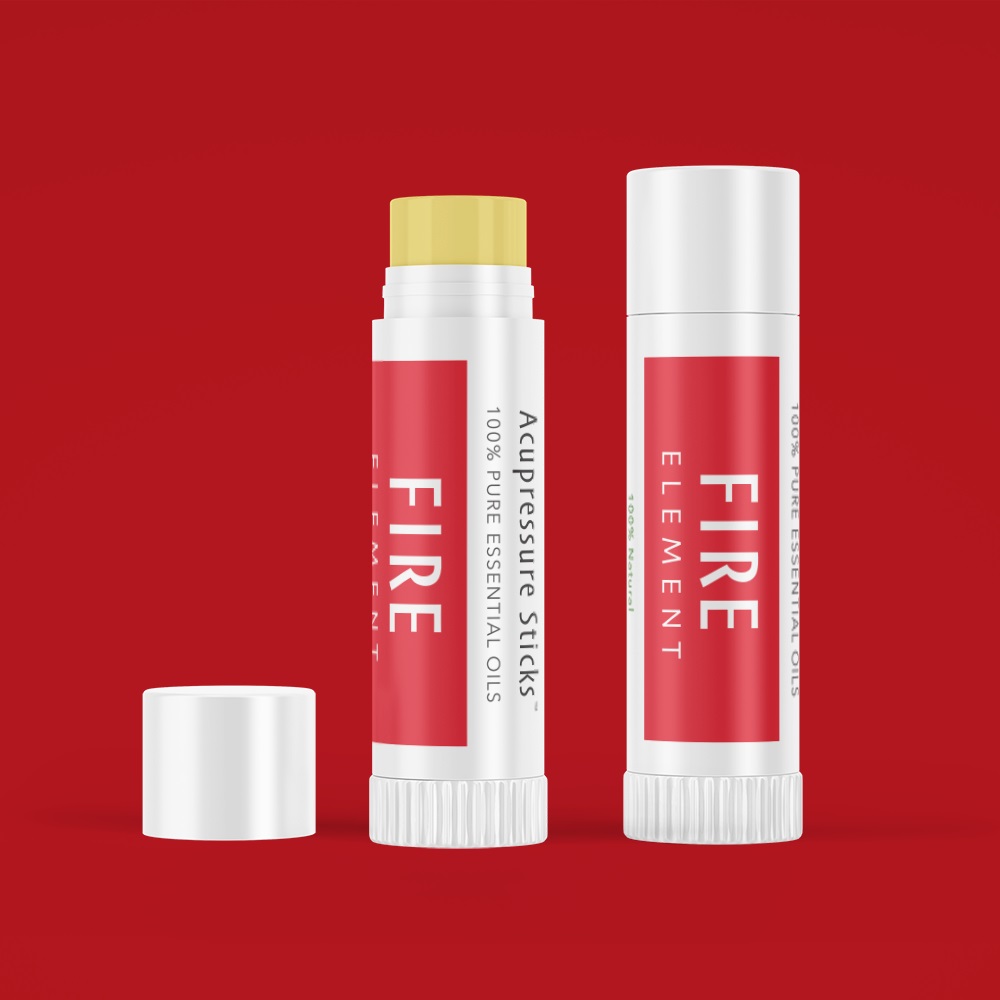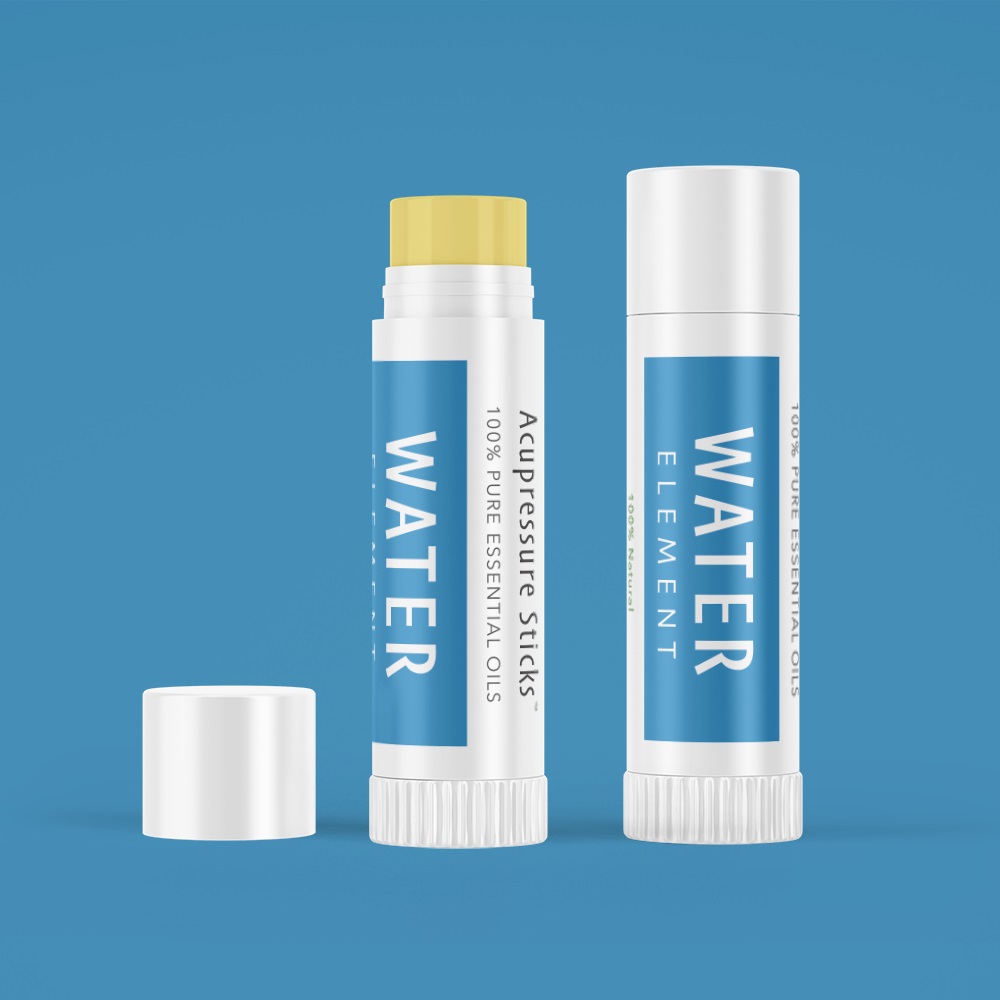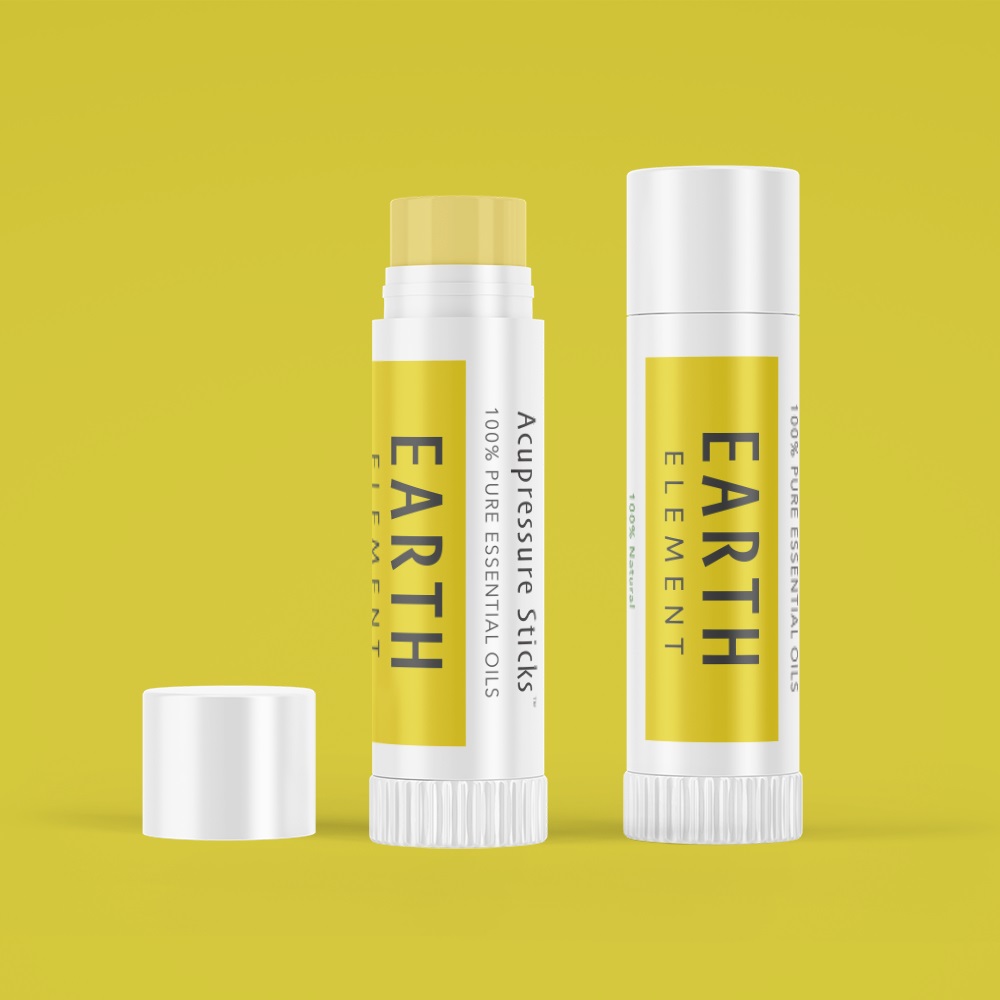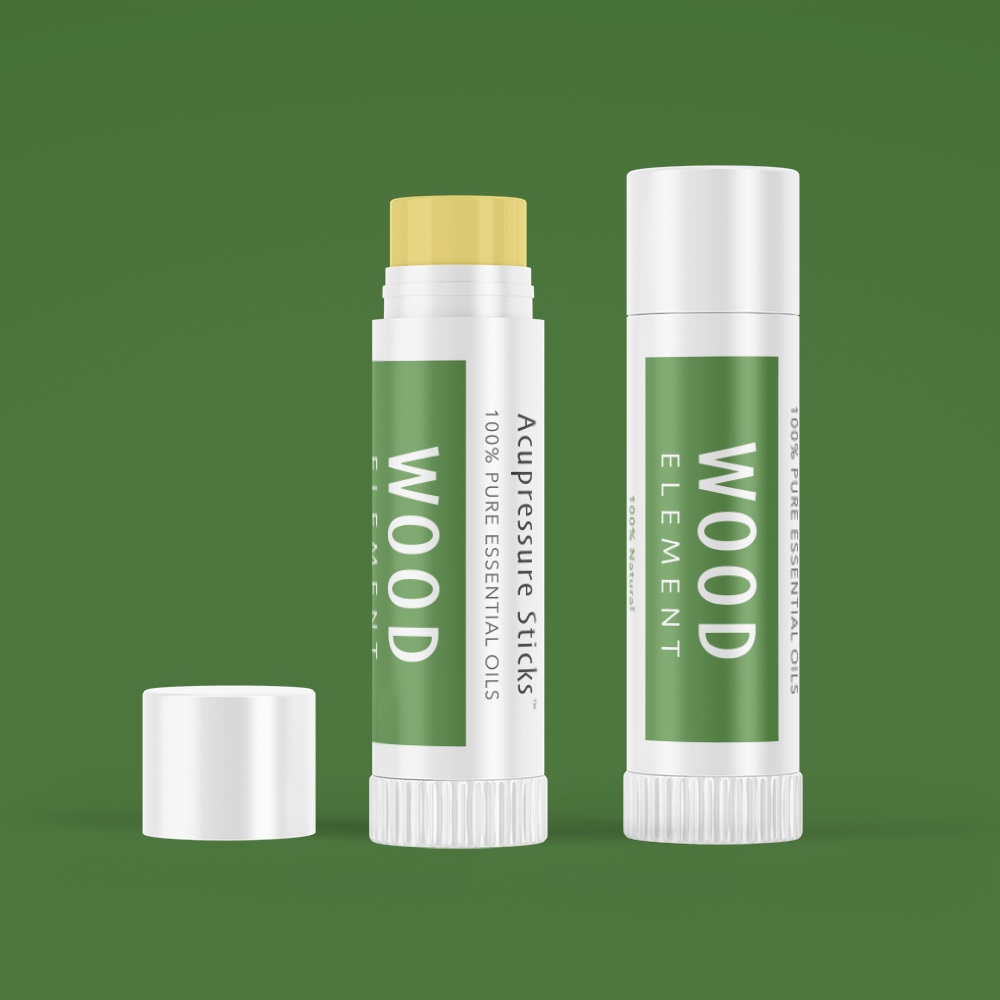Pain Relief
Pain Relief and Chinese Medicine
All of us have experienced pain in our lives; it can be the result of a burn on the stove, or a twist of the ankle when running, or during child birth. However, when pain issues are not treated correctly and becomes something more than a normal red flag that notifies us that we are in danger of some greater trauma, it may become chronic in nature. Traditional Chinese medicine (TCM) has many ways of delineating and alleviating pain syndromes; thus, Chinese medicine can provide more specific solutions for pain syndromes than simple pain relievers that block pain signals. In Chinese medicine, it is generally accepted that pain in the body cannot occur without the presence of Qi Stagnation and/or Blood Stagnation. For best outcomes using self-care, combine associated Aroma Acu-Sticks® to acu-points, topical remedies, and good lifestyle practices.
![]()
Aroma Acu-Therapy™ for Pain
Small Intestine 3
Apply the Fire Element Aroma Acu-Stick® to activate Acupressure Point SI 3
Why? Acu-point Small Intestine 3 treat pain of the upper limbs, neck, spine shoulders, and upper back.
Apply the Water Element Aroma Acu-Stick® to activate Acupressure Point Bladder 62
Why? Acu-point Bladder 62 stimulates the flow of Qi and Blood in the feet, legs, entire back, neck, and head. Together with acupoint Small Intestine 3 it is used to relive pain in the spine as well.
Apply the Earth Element Aroma Acu-Stick® to activate Acupressure Point SP 10
Why? Acu-point Spleen 10 is a major point used for Blood Stagnation anywhere in the body and pain cannot occur according to Chinese medicine without Blood and/or Qi Stagnation.
Apply the Wood Element Aroma Acu-Stick® to activate Acupressure Point LV 3
Why? Acu-point Liver 3 regulates the movement of Qi of the body, and where Qi goes, Blood goes according to Chinese medicine. Using Liver 3 and LI 4 in combination is one of the most commonly used pain protocol.
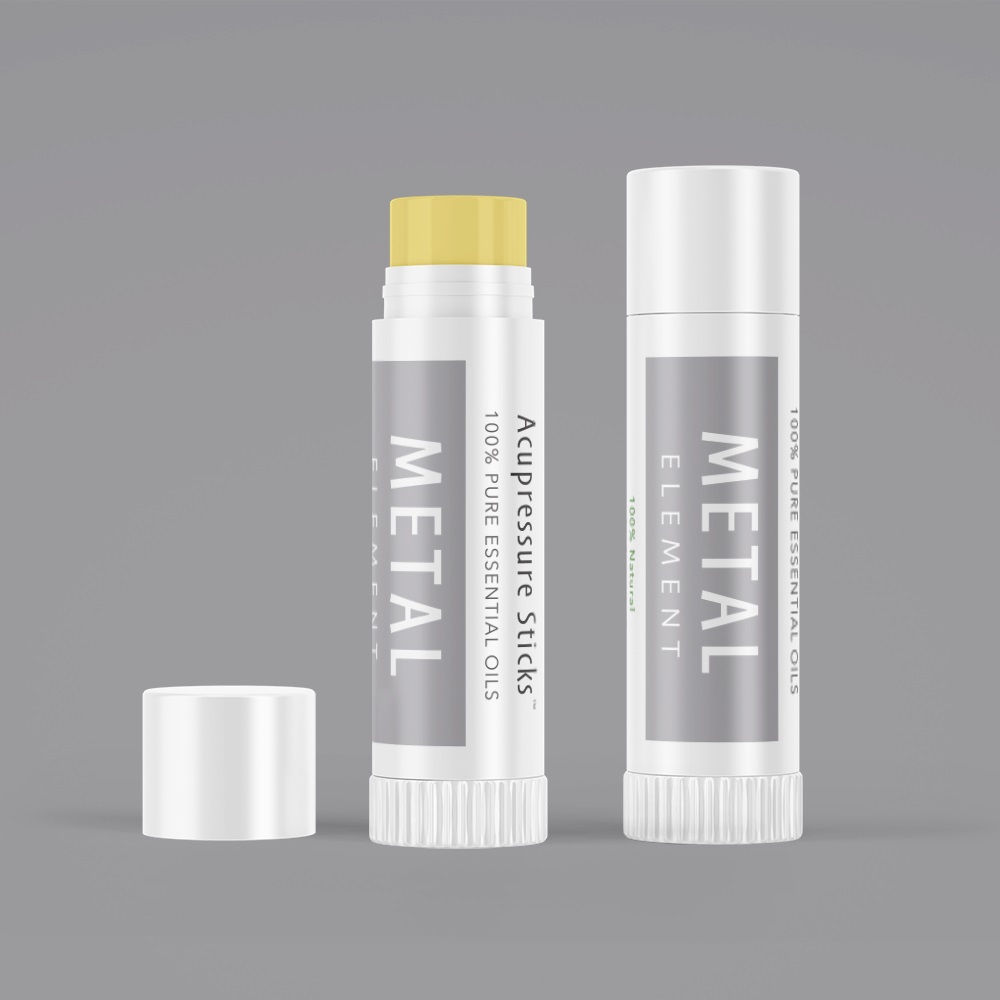 Large Intestine 4
Large Intestine 4
Apply the Metal Element Aroma Acu-Stick® to activate Acupressure Point Large Intestine 4
Why? Acu-point LI 4 used along with Acupoint Liver 3 are called the Four Gates and LI 4 serves to amplify the affect of LV 3 in breaking up Qi Congestion in the body.
Related Articles:
- How Aroma Acupressure Works
- Aroma Acu-therapy® Online Course
- Specific Acu-Point Locations
- Chinese Herbs for Trauma and Sports Injuries
Pain Causes According to Chinese Medicine
Lower back pain can be caused by a number of different imbalances according to Chinese medicine. By using Chinese medicinal remedies an Aroma Acu-Therapy™, one can tonify the related Energetic Organ System(s) and relieve Qi and Blood Stagnation of the Acupuncture Channels that cause pain, thus, experience long-term relief.
![]()
Pain Due to Qi Stagnation
Qi is the vital energy that animates us and makes us vital beings. Qi circulates through the acupuncture channels, or meridians; acupuncturists are manipulating Qi flow with needles located along these channels a breaking up stagnation or stimulating the free flow of Qi to alleviate pain. Burning pain and achy pain associated with nerve pain, is often attributed to Qi Stagnation.
Acupressure Point Combination Strategy:
- Apply the Earth Element Acupressure Stick to Acupressure Point Stomach 36
- Apply the Metal Element Acupressure Stick to Acupressure Point Large Intestine 4
- Apply the Wood Element Acupressure Stick to Acupressure Point Liver 3
![]()
Pain Due to Blood Stagnation
If Qi Stagnation persists, Blood Stagnation can develop. This type of pain tends to be sharp and fixed. Blood  Stagnation can also be caused by trauma such as a fall, a sports injury, or an automobile accident. As it turns out, Blood goes where Qi goes, so the two are typically seen together. Traumatic pain due to injury would result in Qi and Blood tsagnation, and would only be considered abnormal in Chinese medical theory if the injury is mismanaged and not addressed directly after the injury.
Stagnation can also be caused by trauma such as a fall, a sports injury, or an automobile accident. As it turns out, Blood goes where Qi goes, so the two are typically seen together. Traumatic pain due to injury would result in Qi and Blood tsagnation, and would only be considered abnormal in Chinese medical theory if the injury is mismanaged and not addressed directly after the injury.
Acupressure Point Combination Strategy:
- Apply the Earth Element Acupressure Stick to Acupressure Point Spleen 10
- Apply the Metal Element Acupressure Stick to Acupressure Point Large Intestine 4
- Apply the Wood Element Acupressure Stick to Acupressure Point Liver 3
![]()
Pain Due to Internal Dampness
Internal Dampness can develop when the body does not manage fluids well, likely due to Spleen Qi Deficiency. This type of pain tends to be deep and dull pain in the muscles or joints, and is aggravated with wet weather or damp conditions. This type of pain would likely be deep, achy, muscular pain with a heavy feeling in the body. Viscous, sticky Internal Damp Phlegm blocks the free flow of Qi.
Acupressure Point Combination Strategy:
- Apply the Earth Element Acupressure Stick to Acupressure Point Spleen 9
- Apply the Earth Element Acupressure Stick to Acupressure Point Stomach 40
- Apply the Metal Element Acupressure Stick to Acupressure Point Large Intestine 4
- Apply the Wood Element Acupressure Stick to Acupressure Point Liver 3
![]()
Pain Due to Kidney Deficiency
Kidney Deficiency is associated with lower back pain and knee pain most specifically. If Kidney Deficiency is present, the lower back and knees are more susceptible to injury, but this type of pain can develop without any type of trauma at all and can be deep and achy.
Acupressure Point Combination Strategy:
- Apply the Water Element Acupressure Stick to Acupressure Point Kidney 3
- Apply the Water Element Acupressure Stick to Acupressure Point Bladder 62
- Apply the Metal Element Acupressure Stick to Acupressure Point Large Intestine 4
- Apply the Wood Element Acupressure Stick to Acupressure Point Liver 3
![]()
Using Chinese Medicine for Pain Relief
Increasingly, people are looking for more natural approaches to help relieve painful conditions.. Chinese medicine and acupressure are natural self-care approaches that continue to grow in popularity in the United States. Chinese remedies have possible solutions for all types of pain, regardless of what is causing the pain or where the pain is located. The theory behind acupuncture and Chinese medicine states that there is an energy that flows through the human body called Qi, or Chi. This energy can become obstructed for a variety of different reasons. When this occurs, the obstruction results in pain or discomfort.
![]()
Maindet C, Burnod A, Minello C, George B, Allano G, Lemaire A. Strategies of complementary and integrative therapies in cancer-related pain-attaining exhaustive cancer pain management. Support Care Cancer. 2019;27(8):3119‐3132. doi:10.1007/s00520-019-04829-7
Zhao J, Davis SP. An integrative review of multimodal pain management on patient recovery after total hip and knee arthroplasty. Int J Nurs Stud. 2019;98:94‐106. doi:10.1016/j.ijnurstu.2019.06.010
Lim YZ, Chou L, Au RT, et al. People with low back pain want clear, consistent and personalised information on prognosis, treatment options and self-management strategies: a systematic review. J Physiother. 2019;65(3):124‐135. doi:10.1016/j.jphys.2019.05.010
Murphy SL, Harris RE, Keshavarzi NR, Zick SM. Self-Administered Acupressure for Chronic Low Back Pain: A Randomized Controlled Pilot Trial. Pain Med. 2019;20(12):2588‐2597. doi:10.1093/pm/pnz138
He Y, Guo X, May BH, et al. Clinical Evidence for Association of Acupuncture and Acupressure With Improved Cancer Pain: A Systematic Review and Meta-Analysis [published online ahead of print, 2019 Dec 19]. JAMA Oncol. 2019;6(2):271‐278. doi:10.1001/jamaoncol.2019.5233
This information has not been evaluated by the Food and Drug Administration. This information is not intended to diagnose, treat, cure, or prevent any disease.

